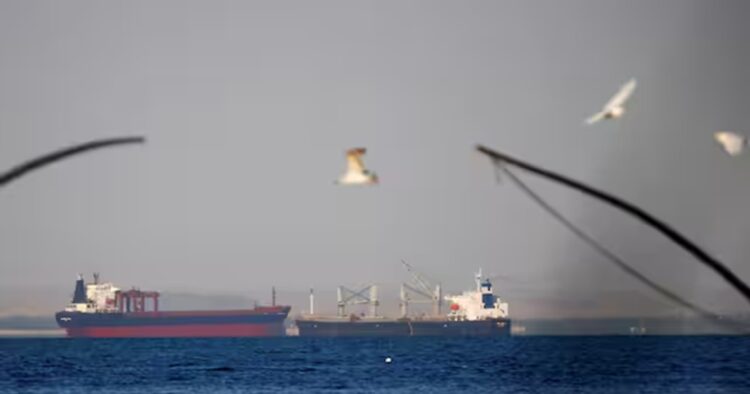‘In the Red Sea region, the recent attacks and a severe drought at the Panama Canal have disordered global trade, leading to slowdowns and redirections in maritime traffic’ according to the International Monetary Fund.
The disruptions have resulted in longer delivery times and increased shipping costs which companies worldwide. As per the data from the IMF’s Port Watch platform, trade volume through shipping lanes has been impacted, bringing challenges to supply chains and economic activities.
Traffic has been affected through the Suez Canal, a crucial maritime route linking Asia and Europe, due to the attacks on vessels in the Red Sea.
With about 15 % of global maritime trade passing through this route, the disruptions have forced many shipping companies to reroute their vessels around the Cape of Good Hope, resulting in extended delivery times by an average of 10 days or more.
This redirection has hurt companies with limited inventories, exacerbating supply chain challenges. The Panama Canal has also faced challenges due to a severe drought, prompting authorities to impose restrictions that have reduced daily ship crossings since October last year.
This slowdown in maritime trade through another vital chokepoint, accountable for about 5 % of global maritime trade, has further compounded the disruptions in global trade routes.
These developments have caused concerns over supply chain disruptions and inflationary pressures, as shipping costs surge amidst longer transit times.
Data from the IMF’s PortWatch platform shows major shifts in trade volume across critical shipping lanes.
The volume of trade passing through the Suez Canal experienced a staggering 50 % year-over-year decline in the first two months of the year, while trade transiting around the Cape of Good Hope surged by an estimated 74 % above last year’s levels.
Transit trade volume through the Panama Canal experienced a nearly 32 % drop compared to the previous year, indicating the scale of disruption faced by global trade routes.
The impact of these disruptions extends beyond delays in delivery times and increased shipping costs.

















Comments